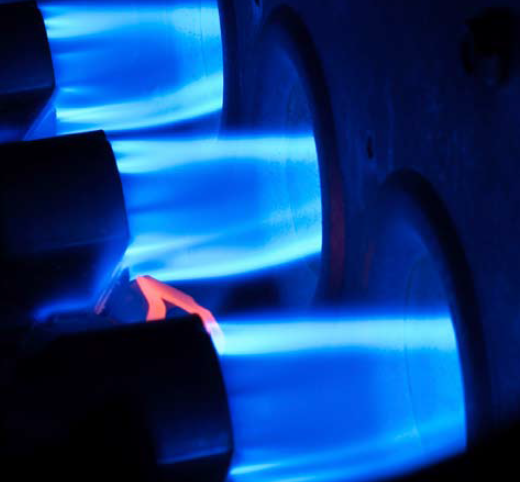-
Student enrolled in Northern Westmoreland CTC, Heating and Air Conditioning program will
learn the necessary skills need to gain entry level employment in system installation,
maintenance and service for residential or commercial heating and cooling systems.
HVAC Students will have the opportunity to earn their EPA 608 and 609, Refrigerant
Recovery Licenses, OSHA Construction Safety 10 or 30 hr. card and other recognized
industry certifications. Technical skills learned will include: ductwork fabrication, layout, sizing,
Pressure/Temperature relationship, soldering/brazing, electrical circuitry, relays, and controls.
Students work on a large variety of equipment including: gas, electrical and oil warm air
furnaces, hydronic boilers, air and geothermal heat pumps, commercial refrigeration and air
filter systems. Help people stay warm in the winter and cool in the summer as you learn to
install, maintain and repair gas, oil and electric heating and cooling systems in residential
and light commercial settings. You'll learn how to use pressure, temperature and electrical
measuring devices, torches and diagnostic equipment. In this shop students will learn skill
necessary to succeed in the HVAC career fields. Students learn how to install, repair and
maintain equipment for maintaining temperature, humidity, commercial refrigeration, and air
quality. This program prepares students to service residential and light commercial heating,
and air conditioning systems.
Employment of HVACR workers is expected to grow faster than average. According to the
U.S. Bureau of Labor Statistics, employment in the HVAC/R industry is projected to grow
15 percent from 2016 to 2026, much faster than the average for all occupations. Diversity
of job opportunities in the HVAC industry is only growing. Focused instruction along with
hands-on learning labs and projects will prepare you to take away the technical know-how
to excel in high-demand HVAC residential and/or commercial careers.
Possible
Occupations:· HVAC Service Technicians
· Refrigeration Technicians
· HVAC Installer
· Plumbing
· Code Inspector
· Electricians
· Energy Auditor
· Design Engineers
· Download BrochureAcademic
Requirements:
· Algebra I
· Algebra II
· Geometry
· College Prep English
· Science
 Curricular
Curricular
Components:
· Basic Electricity
· Basic Plumbing & Tubing
· Sheet Metal Duct Systems
· Basic HVAC-R Systems
· Commercial Refrigeration
· Residential Plumbing
· Energy Management
Fact Check
· High school students interested in HVAC should consider taking academic courses in algebra, mechanical drawing, applied physics and chemistry, electronics, blueprint reading, and computer applications.
· About 54 percent of HVAC mechanics and installers work for industry contractors. About 16 percent of HVAC professionals are self-employed.
· Employment of HVAC mechanics and installers is projected to increase by 28 percent during the 2008-2018 decade, much faster that the average for all occupations.
· Median hourly wages of HVAC mechanics and installers was $19.06 in May 2008. The middle 50 percent earned between $14.94 and $24.84 an hour. Apprentices usually earn about half of the wage rate paid to experienced workers.

